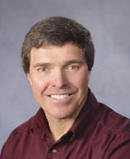
As you are undoubtedly aware, our nation is presently experiencing an epidemic of childhood obesity. Unfortunately, for every youth who is overfat, there are at least two who are underfit. With less emphasis on physical education, and even the elimination of recess in elementary schools, this sad situation is becoming progressively more prevalent.
Overweight children typically become overweight adults, and overweight adults have significantly higher risk of serious degenerative diseases, including high blood pressure, heart problems, stroke, diabetes, several types of cancer, low back pain, and arthritis. Even worse, many children already have beginning stages of cardiovascular disease. Likewise, osteoporosis is actually a childhood problem (insufficient bone development) that manifests itself in the adult years.
In addition to the medical concerns associated with childhood obesity, there are many related physiological problems. Overweight youth usually score poorly on fitness tests such as timed runs, vertical jumps, long jumps, push-ups, pull-ups, sit-ups and agility assessments. They generally don't do well in endurance activities such as soccer, or in jumping activities such as basketball. They don't even like to play tag because they are always "it."
Psychologically, research shows that obese children score very low in self-image and self-confidence. They seldom play sports, organized or otherwise, and are less involved socially than their more fit peers. One recent study sadly revealed that children who are obese and children who suffer from cancer have similar outlooks on life.
One thing we know for sure, the old adage that kids will eventually outgrow their weight problem is seldom true in today's sedentary society. With little activity time at school or at home, obese youth need all the help we can give them to enjoy the benefits of effective exercise. Of course, any exercise is better than no exercise, but for best results the exercise program should match the physical characteristics of children.
Youth, especially elementary school-aged children, have a distinctly different physiological pattern for performing physical activity. They exercise all-out for 30 to 60 seconds, then they rest. After a minute or two of recovery, they exercise all-out again for 30 to 60 seconds. They basically have an innate ability to exercise in an interval-training manner. Conversely, most young people do not fit the adult exercise model of a 5-minute warm-up, 30 minutes of continuous cycling or jogging, followed by a 5-minute cool-down.
One important physical activity that matches children's physiological factors is strength exercise. They perform a 30 to 60 second set of strength exercise, rest a minute or two, then perform another set of strength exercise. In addition, heavier kids typically lift more weight than their lighter peers, making this one of the few activities in which overweight children experience success.
Another benefit of youth strength training is improved body composition. Unlike other forms of exercise, strength training builds muscle and bone resulting in a stronger musculoskeletal system and greater functional capacity. You may have heard that strength training is detrimental to muscle and bone development in children, but nothing could be farther from the truth. To the contrary, a recent nine-month study with nine year old girls showed four times as much bone mineral density increase in girls who performed strength exercise compared to those who did other types of physical activity (6.2% vs. 1.4% increased BMD). In fact, every research study published on youth strength training has shown positive results, with no reports of injury or developmental delay.